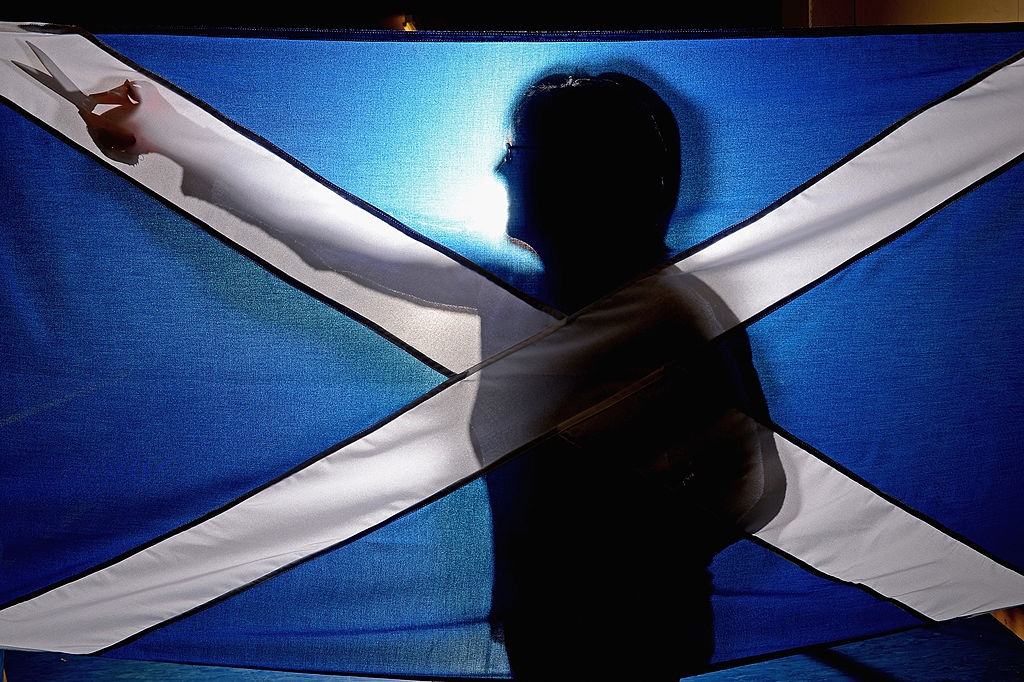When Nicola Sturgeon’s indyref2 gamble backfired and the SNP got slapped around in the election, it was only a matter of time before the Nats turned on each other. But few expected things to blow up quite so quickly. Anger and anguish, division and recriminations – Scotland’s separatists have spent the past few months afflicting their movement with the rancour they visited on the country for five years.
Scottish nationalism is going through a nervous breakdown. Its bloggers are in open warfare. Nicola Sturgeon is under fire from one of her former MPs for throwing her under the bus after a raft of bad headlines. The pro-independence National newspaper has been derided by an MSP as comical. The editor of its Sunday stablemate has launched a campaign to unmask an anonymous Twitter account that mocks Nationalists with Father Ted memes and Monty Python gifs. A movement that just a year ago looked to be on the verge of making history is now ruminating bitterly like Colonel Kurtz. We had immense plans! We were on the threshold of great things!
The new received wisdom is that the SNP is being short-changed in this sudden unravelling. Salmond and Sturgeon brought the national cause out of Egypt and into the Promised Land; all these fury-tweeters in their jim-jams would be nowhere without them. There is a lot of truth in this but it ignores why the warring factions have inflicted so much damage on the SNP and that’s because the SNP gave them the power to do so.
It was the SNP that engaged with ‘grassroots campaigners’, nurtured them during the independence referendum, indulged their insipid notions (wish trees, bad poetry, and the rest) and chuckled away their tantrums as civic and joyous. The old ‘talking down Scotland’ canard was revived on the social media fringes but placed at the centre of political discourse by Nicola Sturgeon. The intimidation of opponents, the incitement against journalists, and the cyberbullying of mere agnostics were tolerated as long as the membership fees kept coming in and the Sturgeon-branded merch kept going out the door.
Much of politics is cyclical and the fortunes of Scottish nationalism tend to wax and wane every generation or so. What is remarkable about the current iteration is how long it has lasted, an achievement all the more impressive because it has been sustained while in government. In the Seventies, it was Scotland’s oil. In the Eighties, the Poll Tax. Third-wave nationalism has been about everything from Iraq and Labour incompetence to social justice and Europe but underlying it all was a shift from sovereignty to identity.
The SNP of 2014 imagined an independent Scotland that shared a currency, monarchy, central bank, financial regulation system, and initially a welfare state with the rest of the UK. If this fell some way short of national liberation it hardly mattered because independence was now about personal fulfilment. ‘Yes’ campaign ads eschewed constitutional politics in favour of soft focus scenes of parents clutching newborns and teenagers singing into hairbrushes in their bedrooms. ‘You Yes yet?’ nationalists demanded and evangelised independence as a process of spiritual completion, a rebirth that washed away all sins and failings. ‘Yes’ was the answer to everything that was wrong in your life.
The necessary corollary to the happy-clappy stuff was some old-time religion. If you hated your wife or your kids were a disappointment or that prick at work got a promotion over you, nationalism provided an outlet for your resentments. And the people standing in the way of independence – the Unionists and the journalists and the ‘experts’ – well, they weren’t just undermining your politics, they were undermining you. Every question was an accusation, every dissent a betrayal. Nationalism made the stakes personal and its converts responded in kind.
Cybernats are a problem and internal factions too but they are not a deviation from the SNP’s mode of politics, they are an outgrowth of it. The old politics disillusioned many with messy compromises between competing interests. The new politics is purer because there can be no compromise between competing egos. Identity politics can tend grievances and direct frustrations; it can even spur discrete change here and there. But it cannot govern over time. The SNP is learning, as Brexiteers and Corbynistas will come to, that when the personal becomes political, the political becomes impossible.







Comments